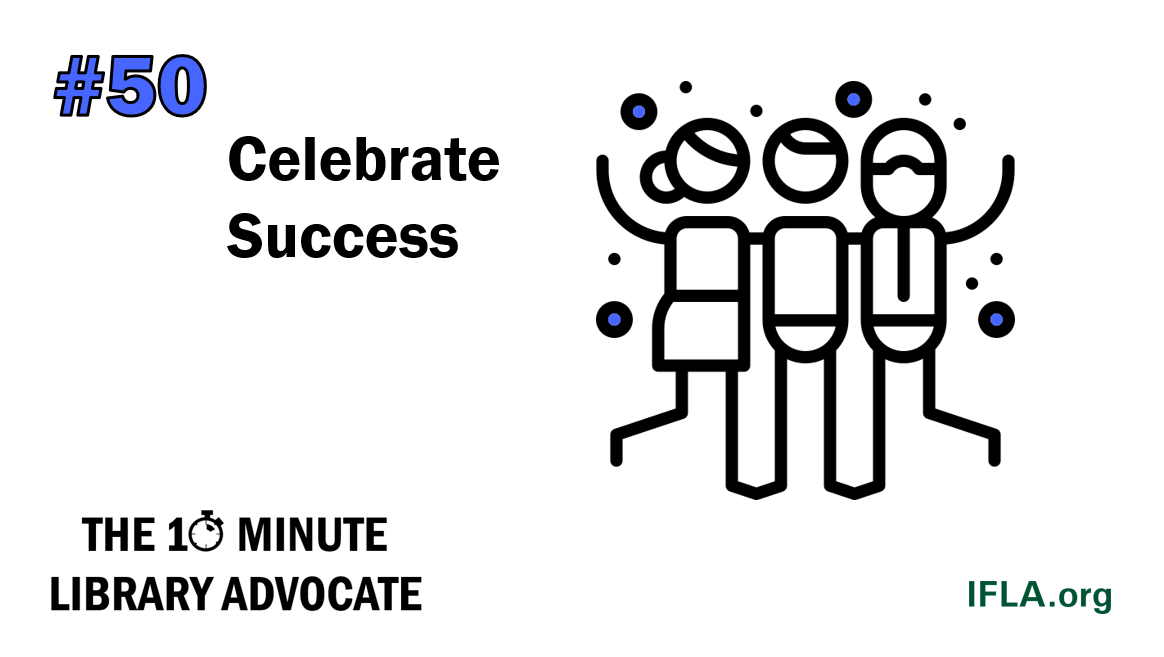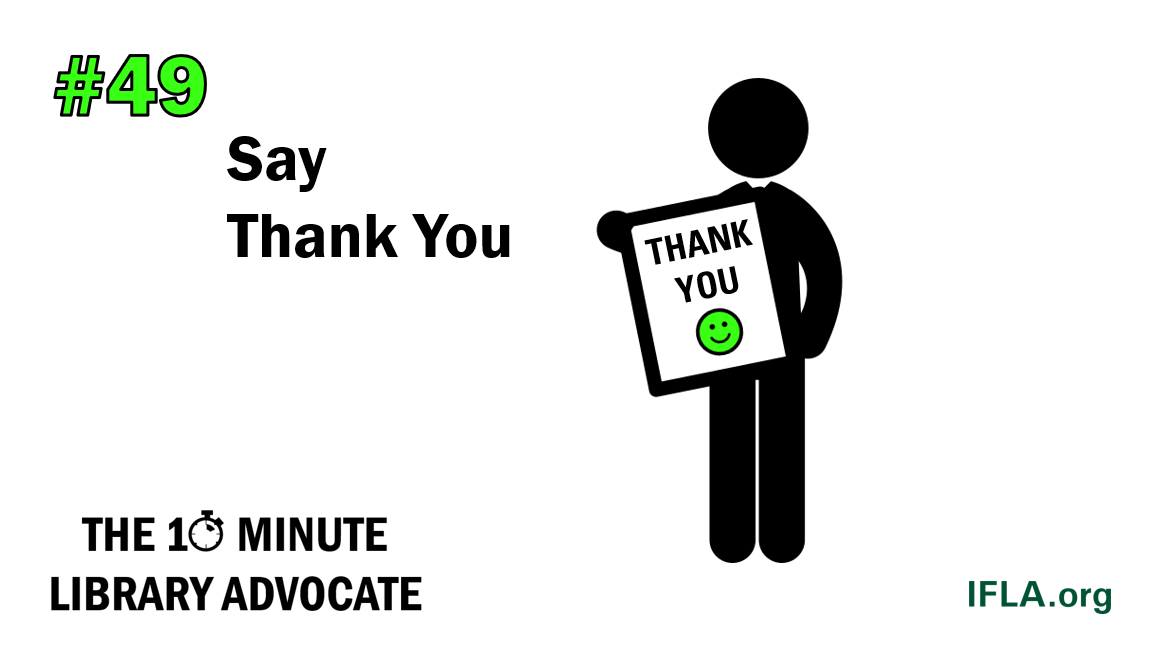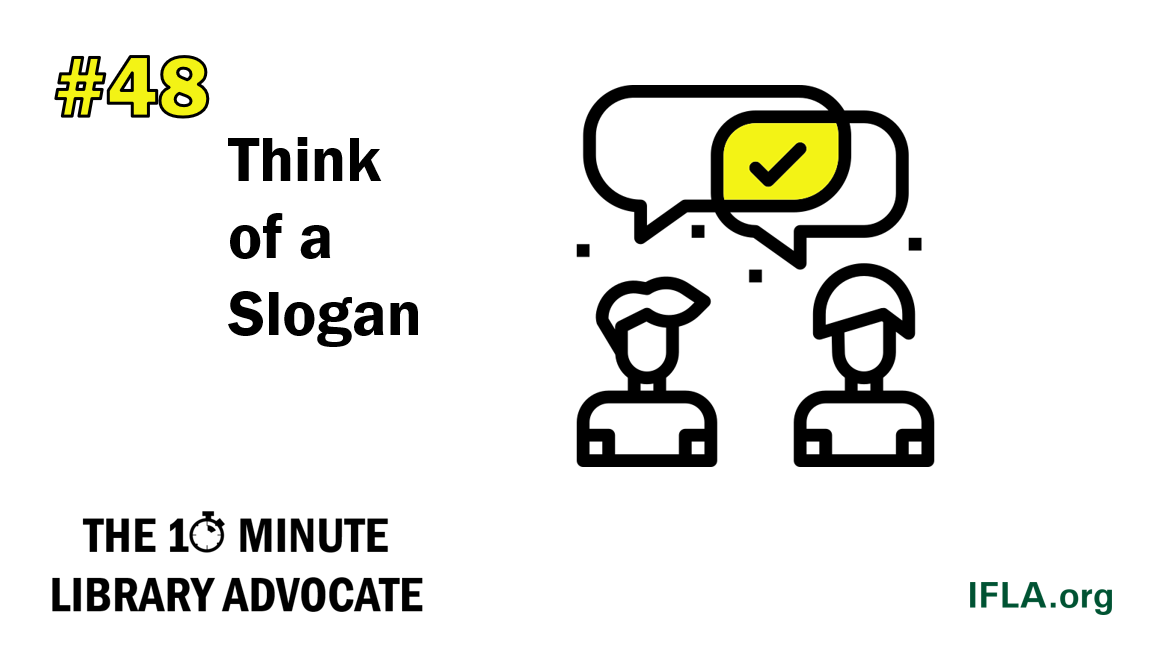The Sustainable Development Goals, and the wider 2030 Agenda that contains them, already represent an ambitious – but necessary – roadmap for a richer, fairer, more sustainable world.
2020 was already supposed to mark the beginning of the Decade of Action – a renewed, reinforced focus on the sorts of concerted efforts needed to succeed.
Of course, 2020 also turned out to be the year of COVID-19, obliging people and governments alike to focus efforts on limiting the spread of the disease, and dealing with its consequences.
As the United Nations Secretary General, Antonio Gutteres pointed out back in July, COVID has both made achieving the Global Goals harder, and underlined why success is nonetheless so necessary.
With governments facing a steeper hill to climb than before when it comes to delivering on the SDGs, the need to draw on what libraries can contribute is as strong as ever. Fortunately, libraries have shown themselves up to the task.
Drawing on the examples collected by IFLA from libraries across the world, throughout the pandemic, this blog offers an overview of how our institutions are showing their value on each of the 17 SDGs.
SDG 1 – No Poverty: the pandemic risks seeing major jumps in the numbers of people facing extreme poverty, with loss of access to housing or basic services. Libraries have looked to counter this, with, for example, libraries in Kansas making laptops and WiFi hotspots available to the local homeless shelter, while those in Toledo, Ohio donating vehicles, and those in Edmonton, Canada, other equipment, in order to ensure that poverty does not mean exclusion.
SDG 2 – Zero Hunger: increased poverty all too often means food insecurity, even in wealthier countries. In response, public libraries in Toronto, Canada, have started to host food banks, while those in Yarra and Monash, Australia are supporting food deliveries. READ centres in Nepal are also engaged in providing food rations.
SDG 3 – Good Health and Wellbeing: while the pandemic has primarily been a physical health crisis, it has clearly also brought significant negative consequences for mental health and wellbeing. Libraires have addressed both, for example helping to share information about COVID-19 (including in local languages, in the case of Kibera and Nakuru public libraries in Kenya, and through the National Library Authority of Ghana), and supporting wider research and decision-making, for example at the national level in Brazil, and at the WHO itself.
To improve mental health, the library in Kota, India, has promoted bibliotherapy, libraries in China have engaged closely with users, while the National Library of Medicine in the US has promoted collections on wellbeing and dealing with stress. Libraries have also been involved in direct pandemic response, for example helping with contact tracing in Ireland and San Francisco, and with wider health work by promoting continued vaccination programmes in Nepal.
SDG 4 – Quality Education: UNESCO has underlined the risk of the pandemic becoming an education crisis. With libraries a key part of the infrastructure in almost every country for both formal, and informal and non-formal learning, much of the library response to COVID-19 has therefore been about how to allow education to continue. We have seen school libraries in Portugal, Uruguay, Brazil and Bhutan develop platforms and tools, while National Libraries in France, Spain and Trinidad and Tobago have also created packages and materials to support home learning, while the National Library of Jamaica has worked to help students pass their final exams. Library teaching – for example around information literacy and research skills, has been brought online, for example in Bangladesh. Further examples are available in our blog for World Teachers Day.
SDG 5 – Gender Equality: as highlighted in the Gates Foundation’s Goalkeepers Report, the pandemic risks representing a setback in efforts to promote gender equality. With libraries often acting as a force for equality by providing services without barriers, much of what they do helps counter this risk. In particular, we have seen work by libraries in Brazil to gather and present information that supports women’s health during the pandemic.
SDG 6 – Clean Water and Sanitation: while libraries are primarily about providing access to information, their role as community centres and neutral spaces mean that they can also become essential point for delivering other basic services, such as sanitation during COVID-19, even when buildings are closed. For example, South Pasadena library in Colorado set up a portable toilet and handwashing station in its carpark, while Richland Library, South Carolina, has shared its hand sanitised stations with the local homeless shelter.
SDG 7 – Affordable and Clean Energy: similarly to sanitation, while providing access to energy may not be a primary goal of libraries, the fact of libraries being community spaces means that they can be very well placed to offer this. During the pandemic, recognising the challenges that some students may have with electricity bills and access, libraries at Arizona State University have therefore prioritised access to device-charging facilities as part of its re-opening plans.
SDG 8 – Decent Work and Economic Growth: In addition to the education crisis highlighted under SDG4, the pandemic risks also becoming an employment crisis, with businesses suffering and jobs being lost. Even with the doors closed, libraries have therefore been helping people apply for unemployment benefits, for example in Miami-Dade and Hilsborough County in the US, while libraries in Greece have widened access to job-search support, and those in Ferguson, CT in the US are helping people develop new business ideas.
SDG 9 – Industry, Infrastructure and Innovation: the pandemic has underlined clearly both the importance of innovation (in finding treatments and cures, and new ways of doing things under changed circumstances), and of digital infrastructure. Again, libraries have been active, for example prioritising computer and internet access for those without this at home in the UK and Sweden, and many examples of leaving library WiFi on in the US. Meanwhile, libraries have continued to deliver on their core mission to support innovation through providing access to existing knowledge, for example in Iraq and many other places.
SDG 10 – Reduced Inequalities: as highlighted above, the pandemic has hit some harder than others, with growing concerns that the deepening of divides in society may be lasting. Libraries, given their mission to promote equality through ensuring that everyone has access to education, research and culture, play a core role in the response. Among groups at risk of marginalisation, children who are speakers of minority languages have benefitted from storytimes in the US and Australia, while older people have been able to develop the skills needed for digital inclusion in South Africa thanks to a video competition run by Johannesburg libraries. As libraries start to reopen, many have paid particular attention to the needs of vulnerable groups by prioritising them in service provision, as in the UK.
SDG 11 – Sustainable Cities and Communities: even libraries have been obliged to limit access to spaces which had become important meeting places pre-pandemic, new ways of engaging and supporting communities have emerged. Those who rely particularly on libraries for human contact and interaction have benefitted from active outreach by libraries to their users, for example in New Zealand and Canada.
SDG11 also covers the importance of safeguarding heritage. Faced with difficulties in carrying out in-person conservation work, libraries in Australia and France have prepared guides on how best to proceed. Meanwhile, they are also busy safeguarding the heritage of tomorrow by collecting materials that witness to experiences today, as set out in our blog from May, with examples from the US, Spain, Cameroon and many others.
SDG 12 – Sustainable Consumption and Production: for many, the pandemic has underlined the value and importance of living more sustainably, avoiding behaviours which tend to accelerate the development and spread of diseases. It also represents an opportunity to stop, think, and change ways of doing things. Libraries have kept up with these wider trends during the pandemic, not least with IFLA’s own Special Interest Group on Environment, Sustainability and Libraries graduating to become a full Section, and a renewed focus in the New York Library Association on how to promote sustainability in library operations.
SDG 13 – Climate Action: while we can hope to find ways to treat and prevent COVID-19 in the coming months, climate change will require a much longer term response. In a year’s time, COP26 will offer an opportunity for governments to set out their own commitments. Libraries, are, of course, already committed to this, with the American Library Association, in the middle of the pandemic, launching programming grants to help libraries address the climate crisis.
SDG 14 – Life Below Water: As with climate change, ensuring the health of our oceans and the sustainability of the life that exists there is an ongoing priority – it is vital not to slow efforts around conservation and research. For example, libraries at the University of Washington in the US serving the oceanography department have made special efforts to maintain services in order to ensure that students and researchers can continue their vital work.
SDG 15 – Life on Land: just as in the case of SDG 14, libraries have an ongoing role in supporting research that in turn helps improve knowledge about how to farm and manage the land sustainably. Libraries, however, are also helping people to connect better to nature during the pandemic – for example in Schleswig-Holstein, Germany, where libraries have produced a booklet with suggestions of activities for readers.
SDG 16 – Peace, Justice and Strong Institutions: the pandemic has underlined the importance of governments that work effectively and transparently in order to respond, as well as of legislatures than can oversee their work. IFLA has published the results of a survey on how parliamentary libraries are helping to make this happen, while libraries in Nepal have helped raise up information about the situation on the ground to help wider government decision-making. Libraries in Indonesia, meanwhile, have sought to help improve the effectiveness of governance issues by summarising relevant laws and regulations for the benefit of citizens.
SDG 17 – Partnerships for the Goals: This SDG covers a wide range of issues, including access to knowledge across borders and digital skills, both of which have proved their importance during the pandemic. A key contribution here has been the work of the American National Library of Medicine in creating an open database for use by scientists around the world. Meanwhile, libraries globally have been sharing their skills in information literacy, for example in Mexico and Bangladesh, while in Kuwait, libraries have been leading research to understand how information spreads and is used by people at the time of pandemic. Libraries in Spain and the UK have been finding ways to offer training in using digital skills online, helping to promote inclusion for all.


